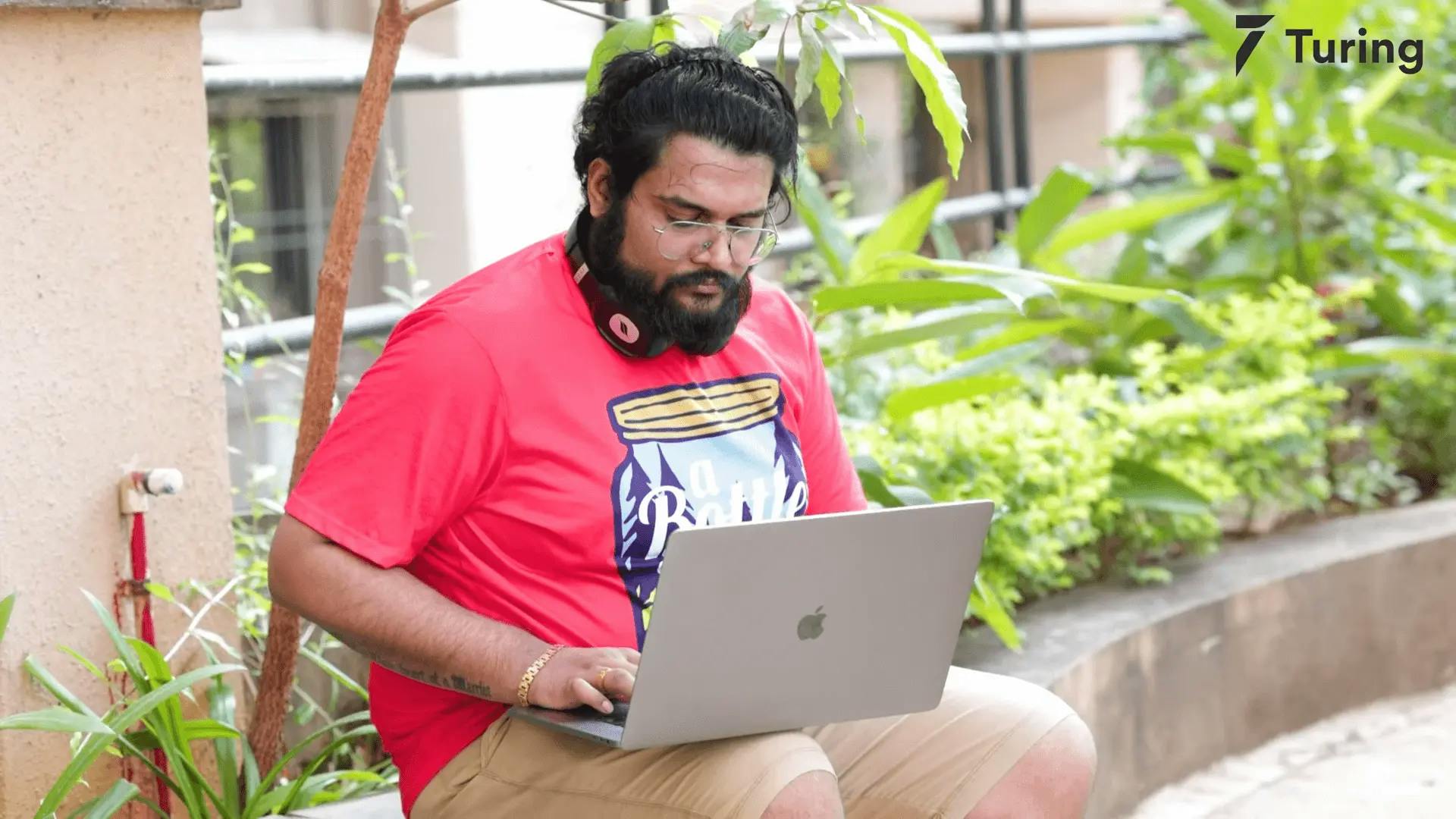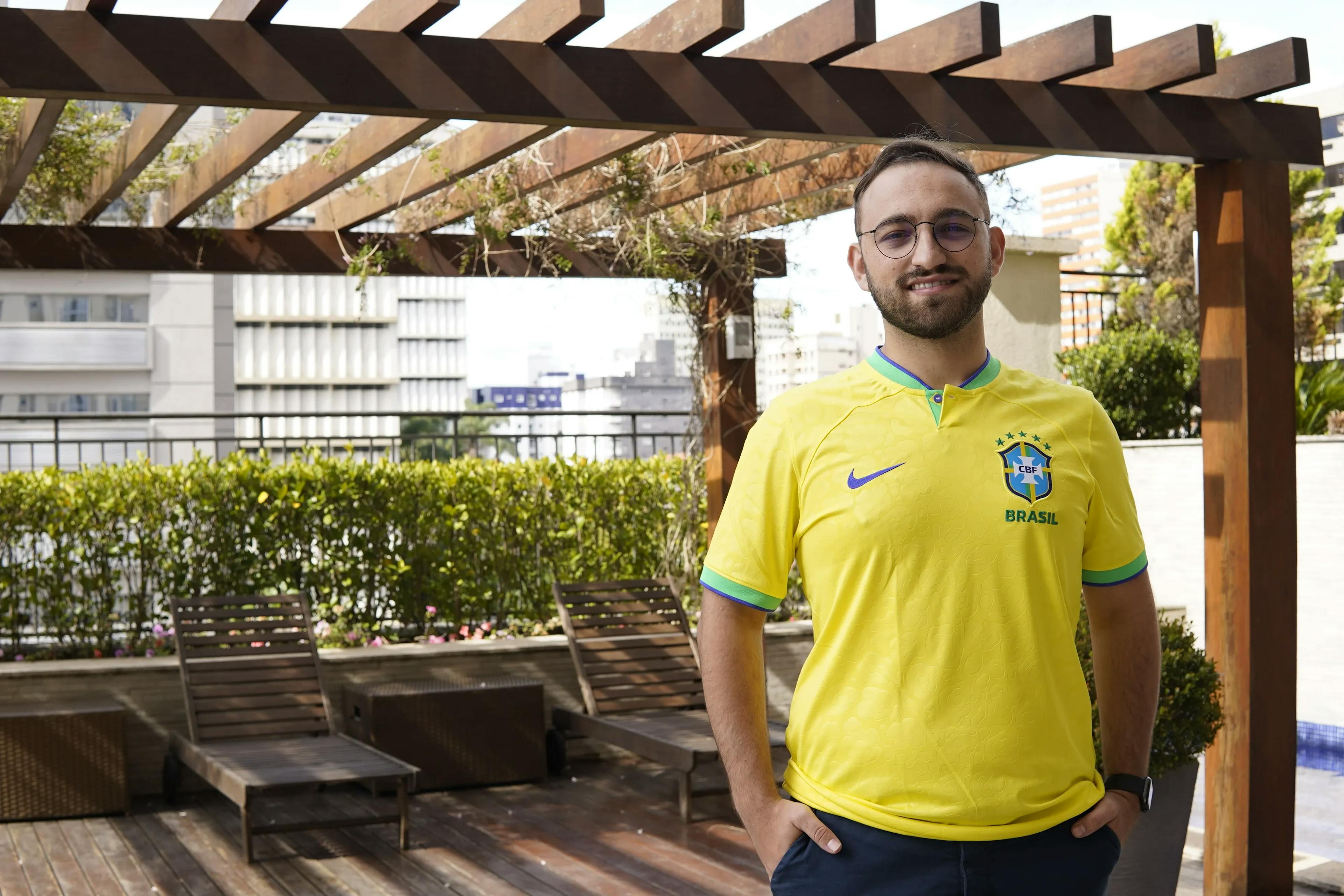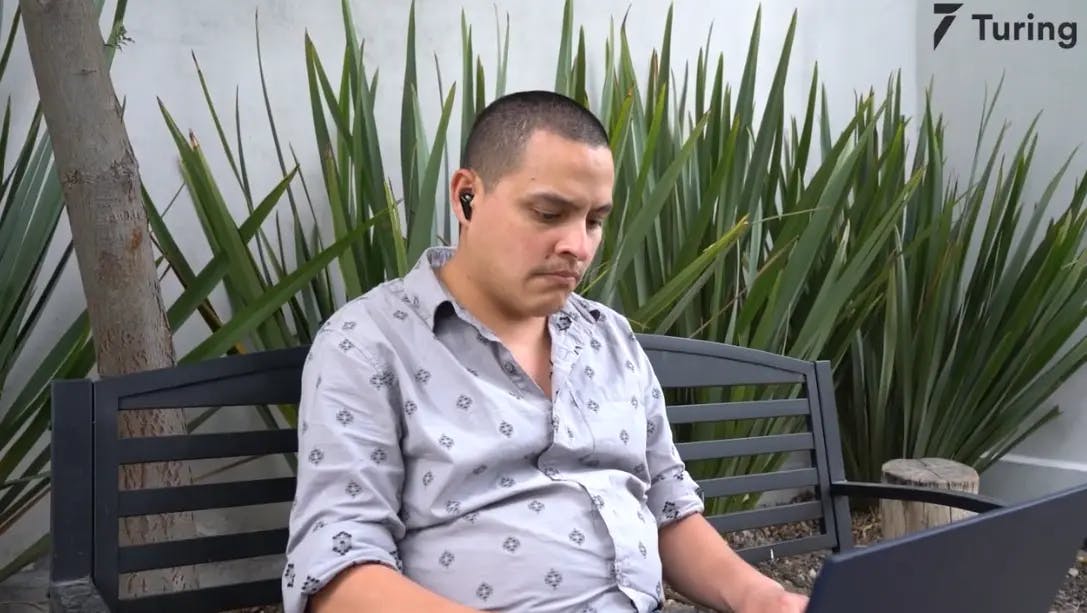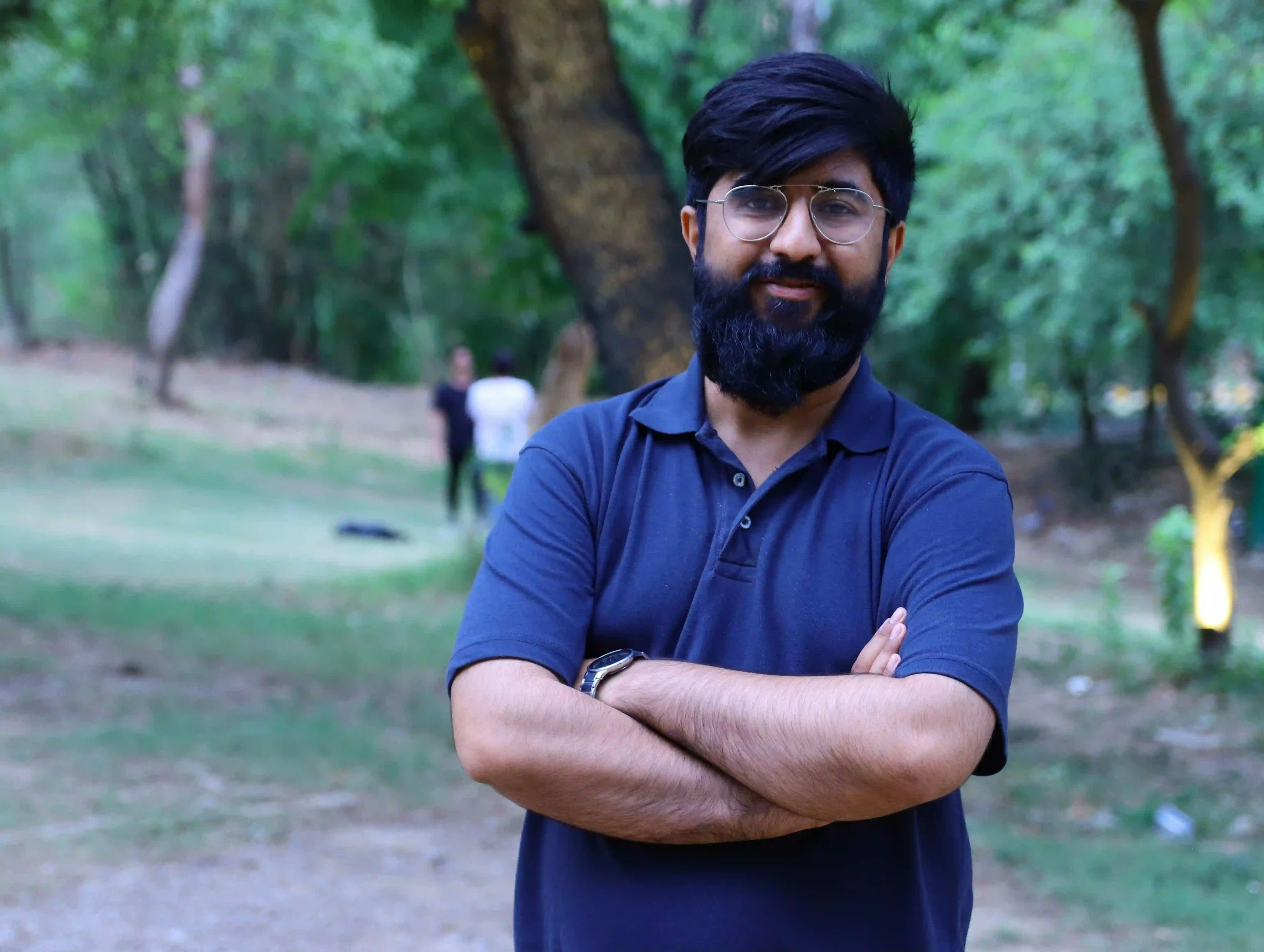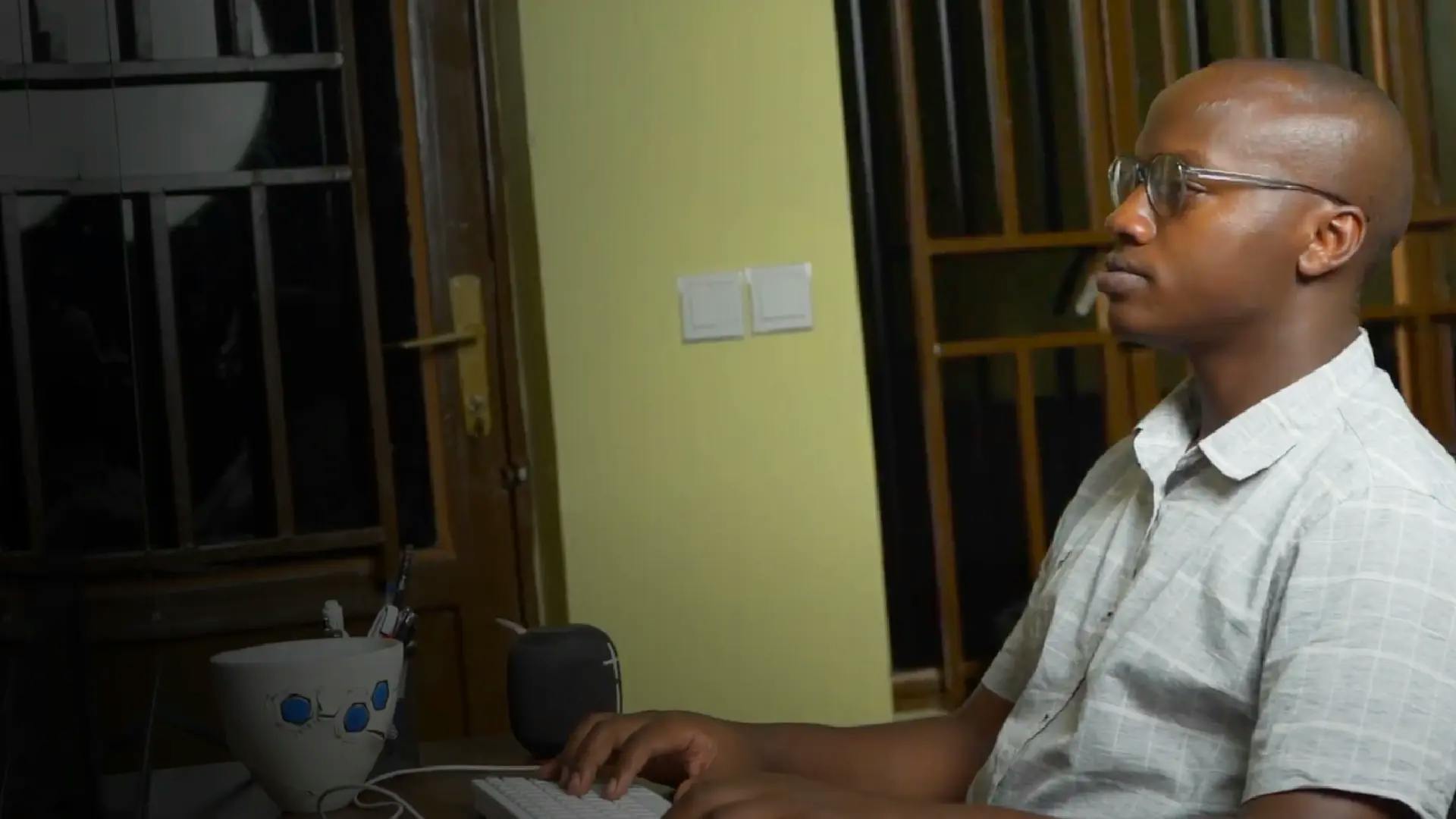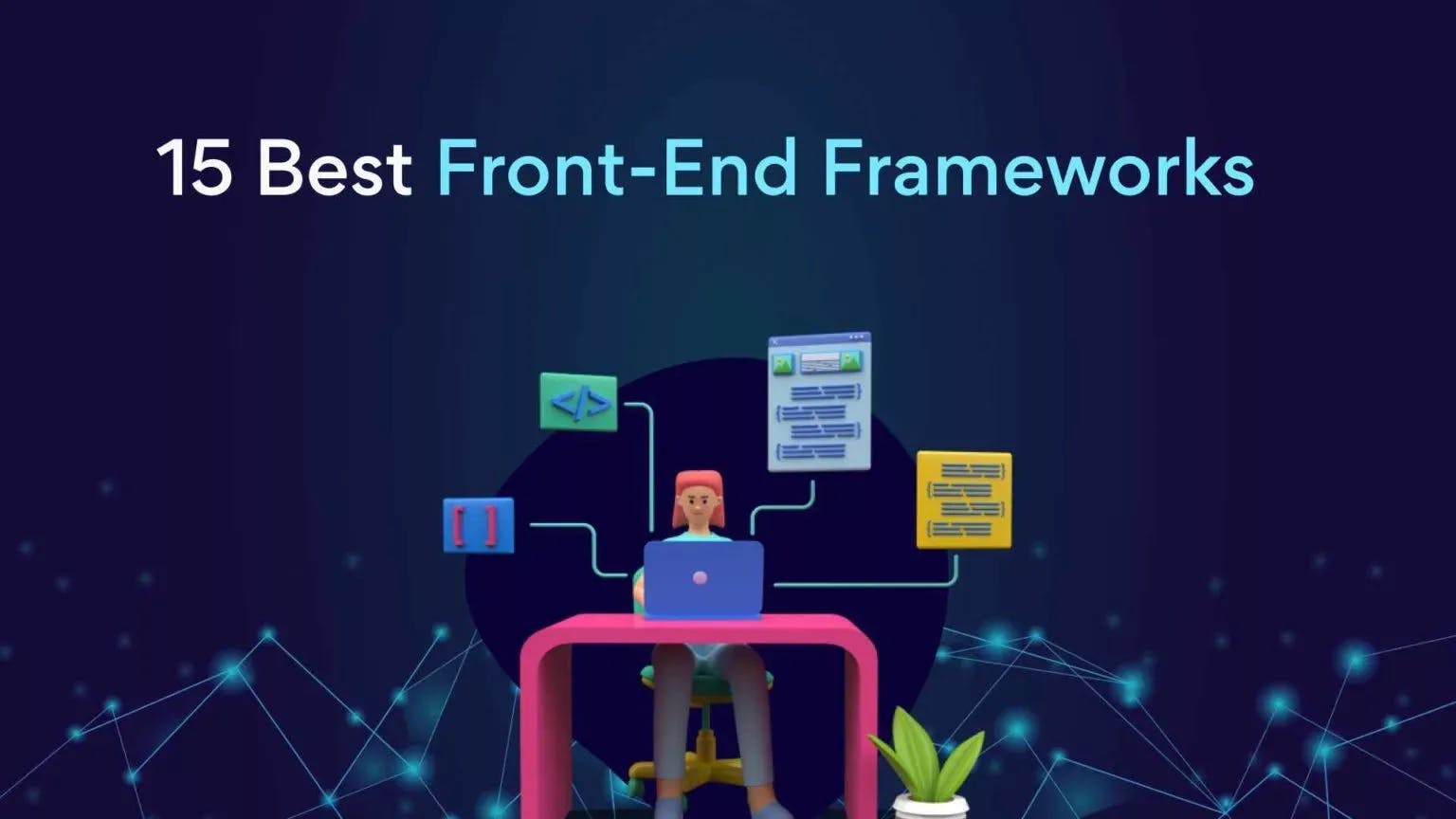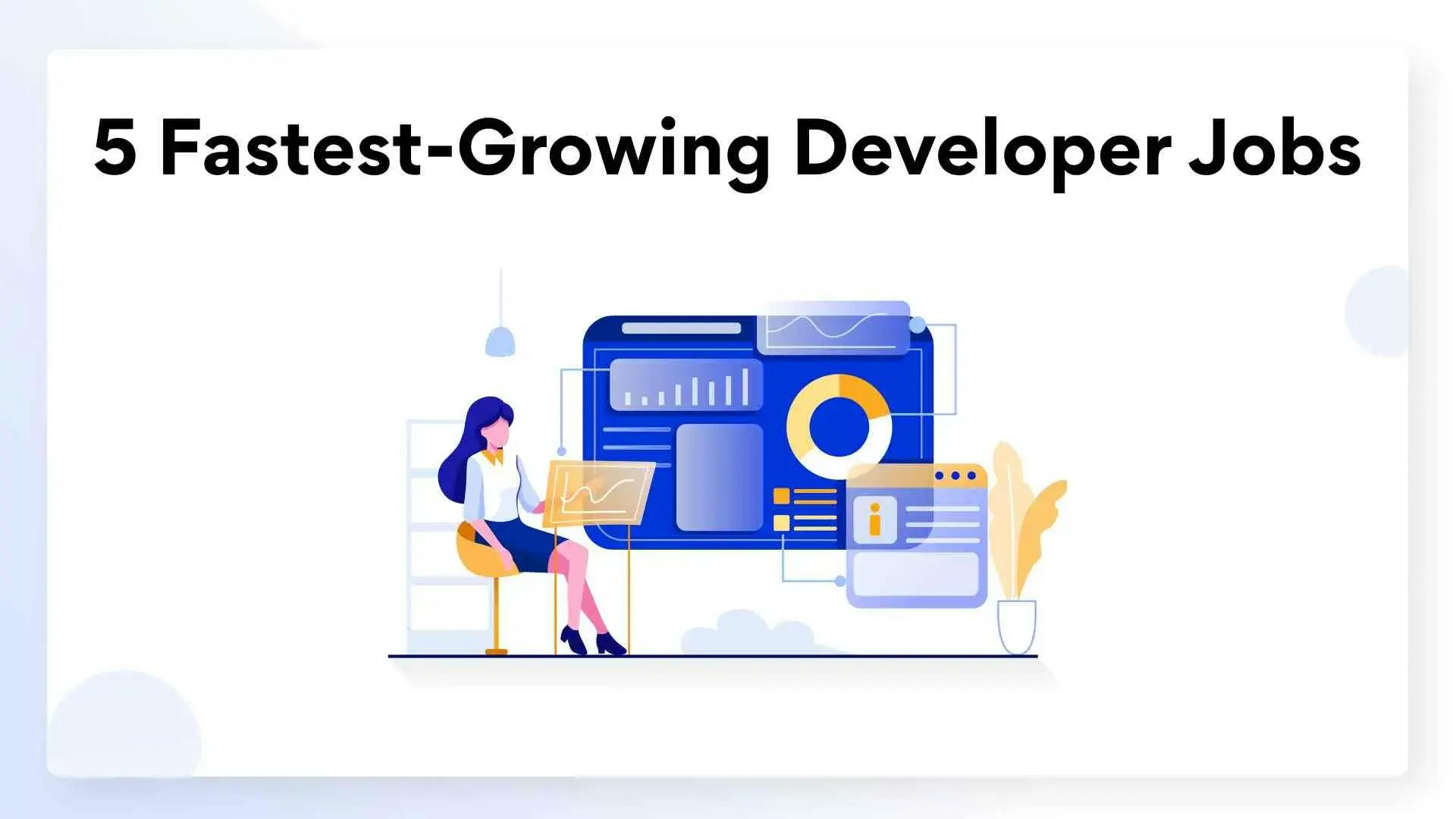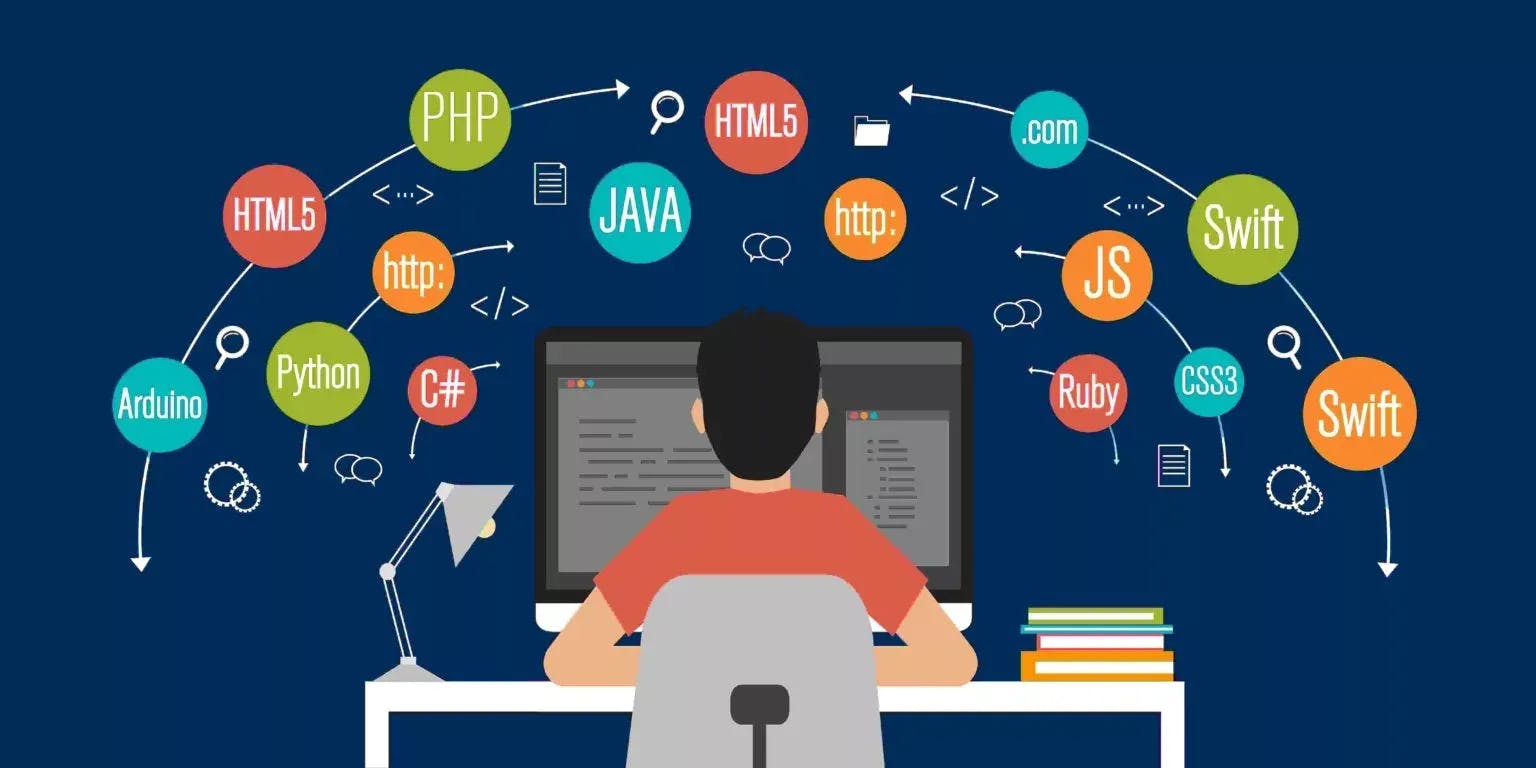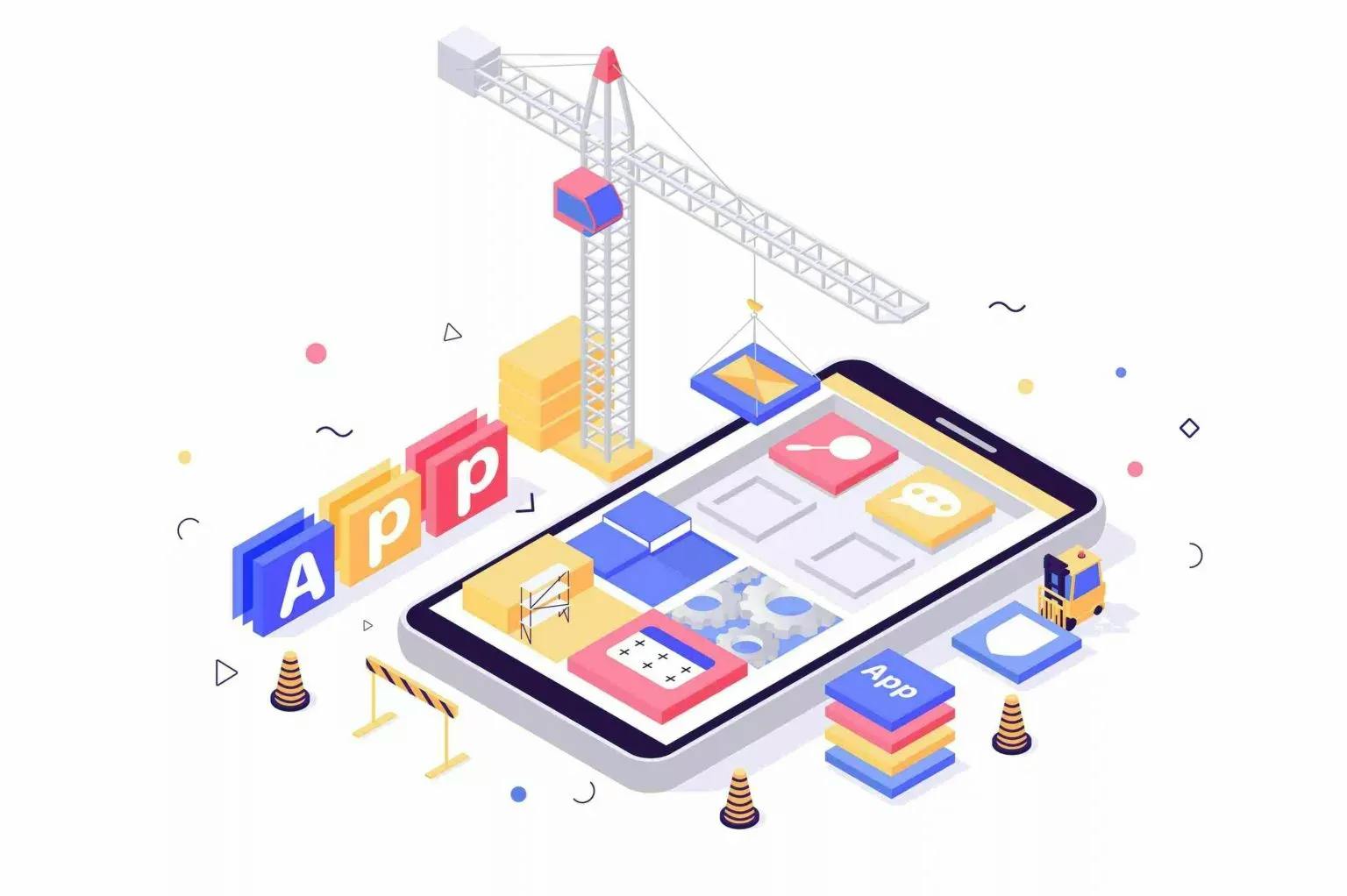Remote Blockchain developer jobs
We, at Turing, are looking for talented Blockchain developers who can design, implement, and administer a secure blockchain-based network. You will analyze our blockchain needs, design customized blockchain technologies, and launch and maintain a blockchain network.
Find remote software jobs with hundreds of Turing clients
Job description
Job responsibilities
- Create reusable, effective, and scalable code.
- Research, design, develop, and test blockchain technologies.
- Brainstorm and evaluate applications for new tools and technologies as they evolve.
- Maintain client and server-side applications.
- Stay informed on the latest crypto technologies for data protection.
- Document new solutions and maintain existing ones.
Minimum requirements
- Bachelor’s/Master’s degree in Computer Science (or equivalent experience).
- 3+ years of experience as a blockchain developer (rare exceptions for highly skilled candidates).
- Proficiency in one of the following languages: C++, Java, and JavaScript.
- Familiarity with basic cryptography to secure data.
- Knowledge of bitcoin blockchain technology.
- Ability to communicate fluently in English
- Availability to work full-time (40 hours/week) and a 4-hour overlap with U.S. time zones for online coding jobs.
Preferred skills
- Strong knowledge of concurrency and writing efficient and safe multithreaded code.
- Knowledge of various cybersecurity guidelines and protocols.
- Excellent verbal and written communication skills.
- Strong analytical skills with the ability to solve complex problems efficiently.
- Proficiency in cloud computing, such as AWS, Google Cloud, Azure, etc.
Interested in this job?
Apply to Turing today.
Why join Turing?
1Elite US Jobs
2Career Growth
3Developer success support
How to become a Turing developer?
Create your profile
Fill in your basic details - Name, location, skills, salary, & experience.
Take our tests and interviews
Solve questions and appear for technical interview.
Receive job offers
Get matched with the best US and Silicon Valley companies.
Start working on your dream job
Once you join Turing, you’ll never have to apply for another job.

How to become a blockchain developer ?
Blockchain is a distributed, immutable ledger that facilitates recording transactions and managing assets in a corporate network. Virtually anything of value can be registered and traded over a blockchain network, eliminating risk and reducing costs for all parties involved.
Core blockchain developers design the architecture and security of a blockchain system. As the use of blockchain increases, there’s a growing market for blockchain developer jobs. Expert blockchain developers build decentralized applications (dApps) and web applications, and smart contracts on the core web foundation and architecture created by the core developer.
Blockchain is ideal for delivering data as it provides instant, shareable, and fully transparent data stored on an immutable ledger that only authorized network members can read. A blockchain network can track orders, payments, accounts, production, and more. You can see all the facts of an end-to-end transaction as members share a unique perspective on the truth, giving you greater confidence, increased efficiency, and additional opportunities.
What is the scope in blockchain development?
As IoT grows in popularity and use, blockchain technology is becoming more widely adopted. According to projections, about 50 billion IoT devices will be used worldwide by 2030, indicating excellent news for blockchain and increased demand for blockchain engineers.
For instance, following the demonetization in India, the Reserve Bank of India encouraged banks to embrace digitization. It issued a statement emphasizing the potential of blockchain to bring about specific changes in how financial systems, collateral authentication, and payment systems operate.
Incorporating blockchain into financial transactions has numerous advantages, including saving money and reducing the time required for processing and certifying transactions.
What are the roles and responsibilities of a blockchain developer?
Blockchain developer jobs demand expertise in various skills as the developer handles various responsibilities. These tasks have nothing to do with the system's architecture or consensus design. Blockchain app development uses blockchain technology to construct decentralized applications, or dApps, in the same manner, that a standard web developer uses the protocols and architectural structure established by a core web architect to create web apps.
A blockchain developer is expected to fulfill the following roles and responsibilities:
- Smart contracts development.
- Development of dApps’ interactive front-end designs and overseeing the complete stack that runs the dApps.
- Back-end development for blockchain.
- Working with managers to determine blockchain technology requirements and expected features.
- Using programming languages and multithreaded code to provide application features and interfaces.
- Using up-to-date cryptography techniques to safeguard digital transaction data against cyberattacks and breaches.
- Keeping client and server-side apps up to date.
- Integrating new tools and technologies to optimize and secure blockchain applications.
- Educating salespeople on how to use blockchain to make safe digital payments.
- Documenting blockchain development processes and adhering to data security best practices.
- Keeping up with the latest blockchain and cryptography techniques.
Blockchain programmers are expected to create systems that collect and preserve blockchain data in a way that precludes alterations or hacking. They construct application features and interfaces, build client and server-side apps, and design secure blockchain technology.
How to become a blockchain developer?
To begin, you should have an academic background in Computer Science or Information Technology. You can pursue a Bachelor's or Master's degree in a particular field. But having a degree is not enough. Before entering the blockchain development domain, you must first master several technical skills, such as data structures, cryptography, smart contracts, etc. Once you've mastered technical skills, you'll need to grasp the fundamentals of blockchain technology.
You'll need to study everything you can about blockchain technology, including how it works and what applications it can serve. A thorough understanding of Blockchain architecture and concepts such as consensus, hash functions, distributed ledger technology, etc., will be a bonus on your blockchain developer resume.
Interested in remote blockchain developer jobs?
Become a Turing developer!
Skills required to become a blockchain developer
Blockchain is a new concept, and no one can claim to be an expert in all aspects of blockchain development. As a result, we'll discuss key skills required in any blockchain developer job.
1. Data structure
Data structures are one of the most critical Blockchain skills since they help to understand the underlying behavior of the block, which is the most basic element in Blockchain. Some blocks on the Blockchain Platform have a header. This header is now significantly smaller than a block. Understanding data structures can help you build a firm foundation for learning complicated topics more quickly and efficiently.
2. Database and networking
Databases play a significant role in storing and retrieving blockchain data, and developers must choose the right type of database and optimize its performance for high-speed data access.
Networking knowledge is essential in designing secure blockchain networks that can prevent attacks, transmit data across networks, and handle distributed ledgers. In summary, databases and networking are fundamental knowledge areas for blockchain developers to create reliable and efficient blockchain applications.
3. Cryptography
Cryptography is a means of developing methods and algorithms to prevent a foreign entity from reading and understanding the contents of personal messages during a communication session. Cryptography knowledge is crucial for blockchain developers to design secure blockchain networks that can protect user data and prevent malicious attacks. Cryptography helps to secure transactions on the blockchain, ensure data privacy, and maintain the integrity of the blockchain network.
4. Interoperability skills
Interoperability refers to seeing and collecting data from several blockchain systems. Will a recipient of data transmitted to another blockchain easily read, interpret, and respond to it? Unfortunately, this is impossible since information cannot be transmitted across the Bitcoin and Ethereum blockchains.
5. Blockchain architecture
In the realm of Blockchain, blockchain architecture is a fundamental idea that all experts should be familiar with. Understanding the significance of a ledger in Blockchain, the meaning of consensus, and how smart contracts function is crucial. Private, consortium and public architecture are the three forms of Blockchain architecture that must be mastered.
Interested in remote blockchain developer jobs?
Become a Turing developer!
How to get remote blockchain developer jobs?
Athletes and developers are similar. They must practice successfully and regularly to excel at their profession. They must also put in sufficient effort to improve their abilities over time. In that sense, there are two important things that developers must focus on for that growth to occur: the assistance of someone more experienced and practice techniques when you're learning. You must know how much to practice as a developer, so ensure you have someone to assist you and watch for signs of burnout!
Turing has rewarding remote blockchain developer jobs to suit your skill and career trajectory. Get full-time, long-term employment opportunities with greater pay and career growth prospects by joining a network of the world's top developers.
Why become a Blockchain developer at Turing?
Elite US jobs
Long-term opportunities to work for amazing, mission-driven US companies with great compensation.
Career growth
Work on challenging technical and business problems using cutting-edge technology to accelerate your career growth.
Exclusive developer community
Join a worldwide community of elite software developers.
Once you join Turing, you’ll never have to apply for another job.
Turing's commitments are long-term and full-time. As one project draws to a close, our team gets to work identifying the next one for you in a matter of weeks.
Work from the comfort of your home
Turing allows you to work according to your convenience. We have flexible working hours and you can work for top US firms from the comfort of your home.
Great compensation
Working with top US corporations, Turing developers make more than the standard market pay in most nations.
How much does Turing pay their Blockchain developers?
Every Blockchain developer can set their rate at Turing. Turing, on the other hand, will suggest a pay at which we are confident we will be able to find you a rewarding and long-term position. Our suggestions are based on our analysis of market dynamics and customer desire.
Frequently Asked Questions
Latest posts from Turing
Leadership
Equal Opportunity Policy
Explore remote developer jobs
Based on your skills
- React/Node
- React.js
- Node.js
- AWS
- JavaScript
- Python
- Python/React
- Typescript
- Java
- PostgreSQL
- React Native
- PHP
- PHP/Laravel
- Golang
- Ruby on Rails
- Angular
- Android
- iOS
- AI/ML
- Angular/Node
- Laravel
- MySQL
- ASP .NET
Based on your role
- Full-stack
- Back-end
- Front-end
- DevOps
- Mobile
- Data Engineer
- Business Analyst
- Data Scientist
- ML Scientist
- ML Engineer
Based on your career trajectory
- Software Engineer
- Software Developer
- Senior Engineer
- Software Architect
- Senior Architect
- Tech Lead Manager
- VP of Software Engineering

